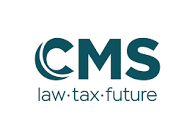On June 30, 2023, the International Swaps and Derivatives Association (ISDA) and the Association for Financial Markets in Europe (AFME) (the Associations) published a Joint Associations Response (the Industry Response) to HM Treasury’s Consultation on the future regulatory regime for environmental, social and governance (ESG) ratings providers (the Consultation). We have previously written – New code of conduct for ESG ratings and data providers – about the development of a Voluntary Code of Conduct for ESG Ratings and Data Product Providers (the Voluntary Code). In this article, we summarize the key points from the Industry Response to the Consultation’s proposal to introduce a binding regulatory regime for ESG ratings providers, but not for ESG data providers.
Investment processes
HM Treasury has highlighted the increasing prominence and influence of ESG ratings on investments and investment processes, referring in the Consultation to a report which found that in 2020, 65% of institutional investors used ESG ratings at least once a week. HM Treasury has positioned its move to regulate as being in response to industry demand to mitigate areas of potential harm from the provision of ESG ratings and ESG ratings-like products.
The Associations recognize the critical role of ESG ratings and support the introduction of regulation for ESG ratings providers, referring, for example, to the increasing use of ESG ratings in the construction of indices and derivatives in structured products. The Associations encourage HM Treasury, the Financial Conduct Authority (FCA) and Prudential Regulation Authority (PRA) to continue to co-ordinate with their international counterparts to avoid a fragmented approach.
Scope of regulation
The proposed regulatory framework is expected to work through an extension of the Regulated Activities Order 2001 (RAO), to include a new regulated activity of the direct “provision” of an assessment of ESG factors to a user in the UK, where the assessment is used in relation to a specified investment, unless an exclusion applies. This would apply to ESG ratings provided in relation to, for example, shares and debt securities, funds, derivatives and contracts of insurance.
Certain emerging asset classes, such as voluntary carbon credits, would not be caught as they are not currently specified investments. However, HM Treasury will consider whether to expand the scope of the RAO or to address ESG ratings in relation to such products through other channels.
The industry has expressed a number of concerns with the proposals, which would need to be dealt with in any future proposed legal drafting:
- Potential overlaps with existing regulated activities. It would need to be clear where the regulatory boundary lies between providing an assessment of ESG factors and the existing regulated activities of providing credit ratings, administering a benchmark and advising on investments. The Industry Response welcomes investment research, which is already heavily regulated, being carved out from any new regime. There is a need for clarity and certainty on the extent of the regulatory perimeter to avoid unintentionally capturing activities and to clearly outline potential areas of overlap. This would ensure that there is no confusion over which parts of the FCA Handbook would apply to ESG ratings providers.
- Application of exclusions and exemptions. There is a risk that, unless the position is kept under review, there could be the unintended consequence of stifling innovation as new products and services emerge and there is uncertainty as to whether or not they are caught by the regulatory perimeter, in the absence of clearly defined exclusions and exemptions. We have set out further commentary on the currently proposed exclusions below.
- Transitional provisions. Without carefully calibrated transitional period provisions, authorized firms would have an advantage over businesses that are not currently authorized and so this should be addressed for competition reasons.
- Territorial scope. At a minimum, the proposed framework intends to capture the direct provision of ESG ratings to users in the UK, by both UK firms and overseas firms. The framework is intended to capture UK-based and overseas providers to avoid providers moving offshore to evade regulation whilst still serving UK customers. Whether firms carrying out these activities would be required to have a physical presence in the UK to obtain authorisation is for the FCA to consider. The framework may then be expanded in time to provide for the recognition of equivalent overseas regimes. It is not yet clear whether the mere fact that a UK person uses an ESG rating produced by a non-UK person would bring that non-UK person within the scope of the UK regulatory perimeter or not, or whether there would be a similar registration, recognition and/or endorsement regime as under the Benchmarks Regulation.
Ratings and data providers
Under the proposed framework, raw and minimally processed data including estimates and proxy data would fall outside the scope of regulation. Instead, ESG data quality issues are expected to be addressed through the alignment of sustainability-related corporate reporting with the International Sustainability Standards Board (ISSB), which will result in free corporate data, subject to global standards. HM Treasury has also flagged the current ongoing work to develop the Voluntary Code, which saw the publication of a draft version on July 5, 2023.
However, in the Industry Response, the Associations have flagged that it is critical that steps are taken to reduce the risk of unintended greenwashing, which applies equally to ESG ratings providers and ESG data providers. Some other voices in the industry have called for a blanket approach for both ESG ratings providers and ESG data providers, to minimise the risk associated with adopting varying regulations.
What is excluded
As part of the proposal, various activities are excluded from the scope of the new regulated activity and therefore will not require FCA authorization. These are broadly summarised into eight categories below:
- the provision of ESG ratings by not-for-profit entities;
- ratings created by an entity solely for use by that entity internally and/or within its corporate group;
- credit ratings which consider the impact of ESG factors on creditworthiness;
- investment research products, such as equity research reports;
- external reviews, including second-party opinions, verifications, and certifications of ESG-labelled bonds;
- proxy adviser services, such as voting or recommendations to shareholders of firms;
- consulting services, even where these relate to ESG matters; and
- academic research or journalism, even where this relates to ESG matters.
While providing a clear and comprehensive list of exclusions is recognised in the Industry Response as being critical to the regime’s success to avoid stifling innovation and to build in flexibility, the onus should be ensuring that the scope of the new regulated activity is sufficiently clear in the first place.
The industry has generally expressed support on exclusions relating to internal ESG ratings, and investment research products. However, concerns have been expressed regarding ESG ratings by not-for-profit entities, as market participants consider regulations should apply given providers may still fail to comply with global standards, despite the absence of a profit motive. I
t has also been suggested that regulatory requirements should apply to both proxy reports (and related services), as well as to second party opinions in the context of sustainability-linked bonds, loans and derivatives. Market participants have suggested wider exclusions for financial products which are screened for ESG characteristics (eg a fund or eligible collateral).
Impact on entry to UK market
HM Treasury recognizes that smaller providers may be disproportionately impacted by regulation given its onerous conditions and associated costs. This may lead to barriers to entry for smaller firms which may be disincentivized from entering the UK market.
As a result, HM Treasury has discussed various ways of distinguishing between smaller providers of ESG ratings and larger ones, including by referring to ‘micro-entities’ as defined under the Companies Act 2006 (turnover of less than £632,000 ($809,219) and less than 10 employees) and to ‘small-companies’ (turnover of less than £10.2 million ($1.5 million) and less than 50 employees).
Industry participants have expressed varied opinions regarding proportionality, which could provide opportunities for loopholes, as well as inappropriate threshold revenues for entities based outside of the UK. Therefore, it has been suggested that an entity should fall within the scope of regulation regardless of the size of the ESG rating provider.
Tom Callaby and Laura Houët are both financial Services partners and Liz Jewitt is a regulatory associate in the law firm CMS.


















